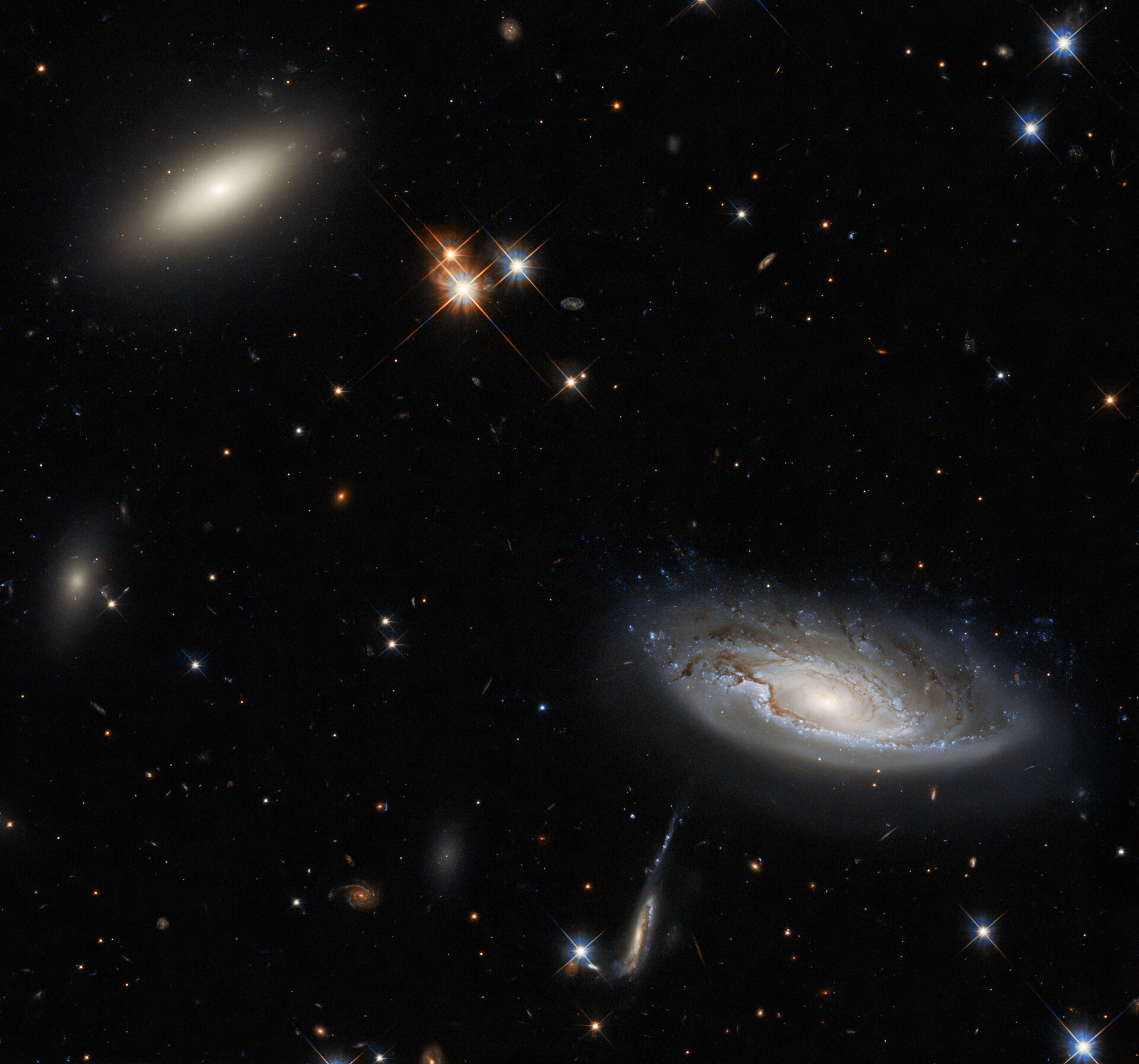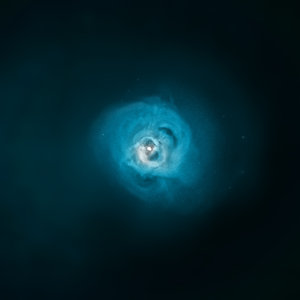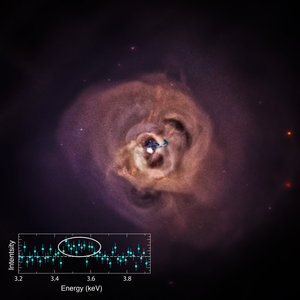

One of the greats
Two things capture your attention in this spectacular Picture of the Week, which was taken using Hubble’s Wide Field Camera 3 (WFC3): the two enormous galaxies that flank the left and right sides of the image. The galaxy on the left is a lenticular galaxy, which rejoices in the name of 2MASX J03193743+4137580. The side-on spiral galaxy on the right is more simply named UGC 2665. Both galaxies lie approximately 350 million light-years from Earth, and they both form part of the enormous Perseus galaxy cluster.
Perseus is an important figure in Greek mythology, renowned for slaying Medusa the Gorgon — who is herself famous for the unhappy reason that she was cursed to have living snakes for hair. Given Perseus’s impressive credentials, it seems appropriate that the eponymous galaxy cluster is one of the biggest objects in the known Universe, consisting of thousands of galaxies, only a few of which are visible in this image. The wonderful detail in the image is thanks to the WFC3’s powerful resolution and high sensitivity. The WFC3 is sensitive to both visible and infrared light, so those are the wavelengths that are captured in this image. The Perseus supercluster looks very different at other wavelengths. Whilst in this image the spaces between the galaxies appear dark and peaceful, when the X-ray emission is observed the Perseus cluster appears to be burning with bright intense light.





